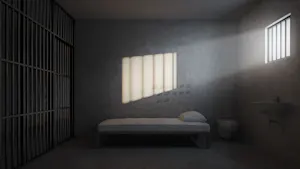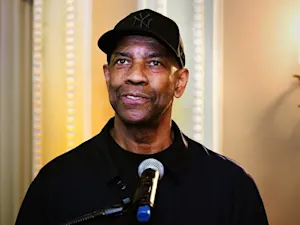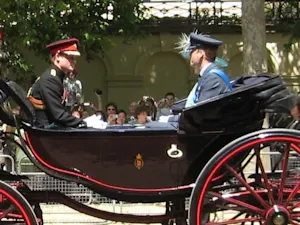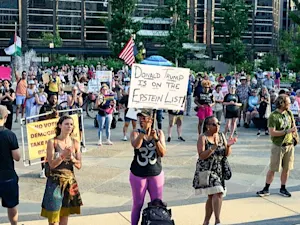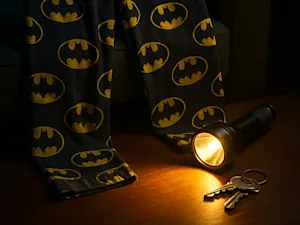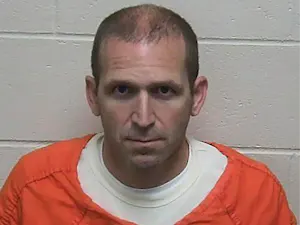
Menendez Brothers Denied Parole — Again
Mugshots of Erik Galen Menéndez (right) and Joseph Lyle Menéndez (left), 2023. Photo courtesy of Richard J. Donovan Correctional Facility in San Diego, California. Public domain.
In a legal drama that has captivated true crime followers for decades, the Menendez brothers — Lyle and Erik — reportedly faced a significant setback in August 2025 when California's parole board denied their requests for release. After more than 35 years behind bars for the 1989 murders of their parents, the brothers were each handed a three-year denial, pushing their next opportunity for parole years into the future. This decision reignites the emotional and legal battle between justice and redemption, with their legal team decrying the hearings as "outrageously rigged", according to The U.S. Sun, and family members accusing the system of bias. Yet, despite growing public sympathy fueled by recent media portrayals, the path to freedom remains steep and uncertain.
A High-Stakes Hearing and Its Fallout
The parole hearings, held over two days, were the closest the Menendez brothers have come to freedom since their convictions in 1996. Both Lyle, 57, and Erik, 54, were reportedly questioned extensively by panels of commissioners about their childhood abuse claims, their behavior in prison, and their mindset surrounding the murders. The brothers have long maintained that the killings were acts of self-defense after enduring years of emotional and sexual abuse by their father, José Menendez, at their Beverly Hills mansion.
Despite their claims and decades of incarceration, the parole board cited several reasons for denying release. Erik was reportedly criticized for multiple in-prison infractions, including possession of contraband cellphones, involvement with a prison gang, and drug use in his early years behind bars. The board found these actions "disturbing" and indicative of a lack of full rehabilitation, as reported by The U.S. Sun.
According to the Associated Press, Lyle's denial reportedly hinged largely on his refusal to fully accept responsibility for the murders, as he continues to assert the self-defense narrative. The board viewed this as a sign that he remains unfit for release, with Commissioner Julie Garland emphasizing Lyle demonstrated "antisocial personality traits like deception, minimization and rule breaking that lie beneath that positive surface."
Legal Team Calls the Hearings "Rigged"
Mark Geragos, the brothers' attorney, has been vocally critical of the parole process. He described the hearings as an "outrageous" sham, according to The U.S. Sun, alleging bias and unfair treatment. Geragos reportedly pointed out that the parole board focused disproportionately on the brothers' actions at the time of the crime rather than their conduct over the past three decades. For example, he criticized the board's questioning of Lyle about purchasing a Porsche shortly after the murders, contrasting it with Erik's choice of a Jeep, as if this reflected their personalities or remorse levels. Geragos argued this line of questioning was irrelevant and unfair, saying, "Shame on me for thinking there would be equity in this." He highlighted that Lyle has had no violent incidents in prison for 30 years and has contributed positively through mentorship programs.
Geragos also reportedly challenged the board's condemnation of the brothers' illicit cellphone use, calling it hypocritical given the widespread smuggling and selling of phones by prison guards. Geragos vowed to fight the parole denials through appeals and by urging California Governor Gavin Newsom to intervene. Newsom, who can review and overturn parole board decisions in murder cases, has previously ordered comprehensive risk assessments of the brothers and overturned parole board decisions in other high-profile cases, making him a pivotal figure in this ongoing saga. "This will be a great test [of Newsom]. I think [he will take action on behalf of the brothers]. If I'm wrong, I'm wrong. I'm not relying on it, I'm going back to court," Geragos said, as reported by The U.S. Sun.
Family Divisions and Public Sympathy
The parole hearings also exposed a deep emotional divide within the Menendez family and the public. According to The Guardian, more than a dozen relatives spoke in favor of the brothers' release, including Erik's stepdaughter and other family members who expressed forgiveness and support. Some family members have even offered homes and stability for the brothers if released, underscoring a belief in their rehabilitation and remorse.
However, the victims' side remains steadfast. Los Angeles County District Attorney Nathan Hochman praised the parole board's decision, emphasizing that the brothers have not fully accepted responsibility and that justice must be served for José and Kitty Menendez, as reported by The Guardian. Hochman's office has opposed efforts to reduce the brothers' sentences or grant parole, reflecting a broader societal tension between punishment and the possibility of redemption.
The Role of Media and New Evidence
Recent years have seen a resurgence of public interest in the Menendez case, fueled by Netflix series and documentaries that introduced a new generation to the brothers' story. These portrayals have generated sympathy and sparked debates about the complexities of abuse, trauma, and justice. Yet, some family members have reportedly criticized these dramatizations for inaccuracies and sensationalism, arguing they distort the truth and the brothers' character.
Meanwhile, the brothers' legal team has reportedly pursued new evidence to support claims of sexual abuse by their father, including a letter Erik wrote as a teenager and testimony from a former member of the boy band Menudo alleging abuse by José Menendez. These developments have led to petitions for a new trial or resentencing, though the current district attorney opposes such moves, maintaining that the brothers have not shown full insight into their crimes.
Waiting in the Wings: The Next Steps
Although the parole board issued a three-year denial, the Menendez brothers can request an administrative review after one year and may be eligible to appear before the board again in about 18 months, though the odds remain uncertain. California's parole system is known for its difficulty, especially for high-profile cases involving violent crimes.
References: Lyle & Erik Menendez victims of 'outrageously rigged' parole hearings as their lawyer reveals key person in appeal plan | Erik and Lyle Menendez denied parole: Insights from the hearing | Key takeaways from the parole hearings of Erik and Lyle Menendez | California








